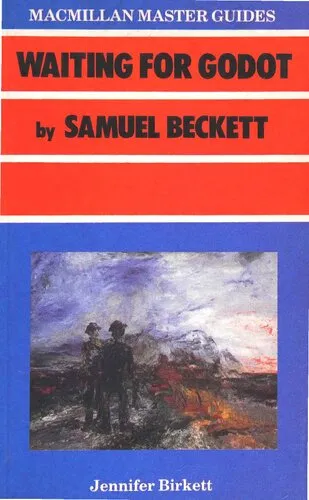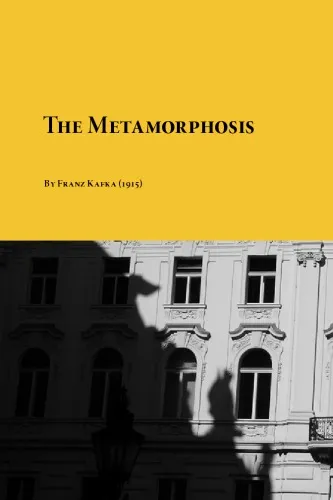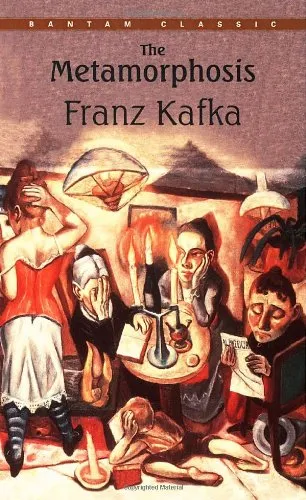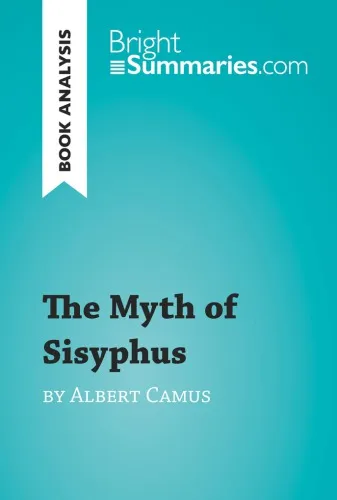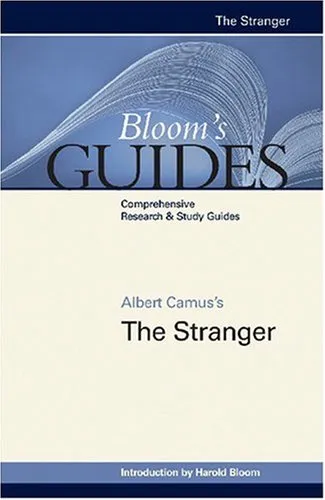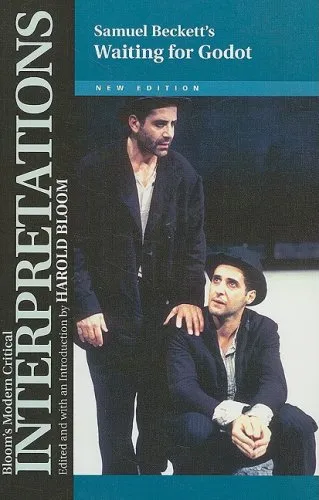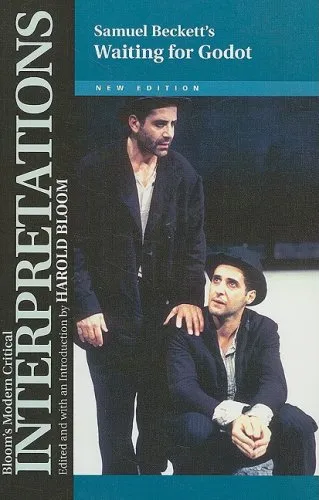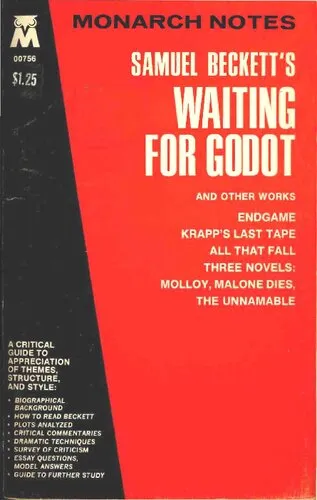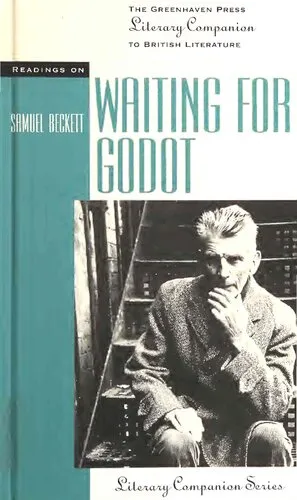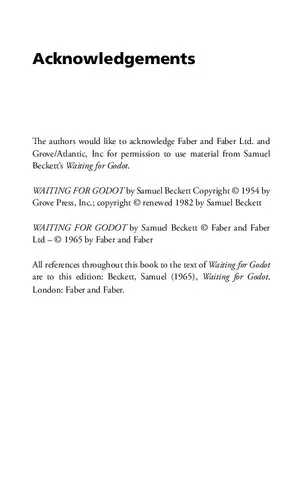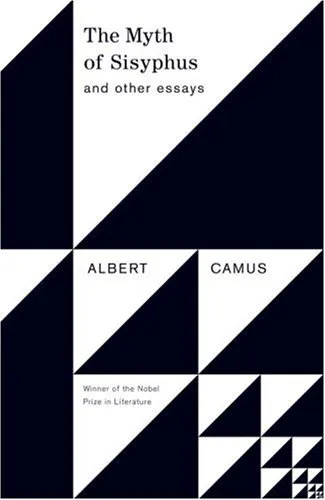Waiting for Godot by Samuel Beckett
4.5
Reviews from our users

You Can Ask your questions from this book's AI after Login
Each download or ask from book AI costs 2 points. To earn more free points, please visit the Points Guide Page and complete some valuable actions.Related Refrences:
Introduction to "Waiting for Godot" by Samuel Beckett
"Waiting for Godot," a play by Samuel Beckett, stands as one of the most iconic pieces of literature in the 20th-century theatre. This work, which Beckett originally penned in French and later translated into English, embodies the essence of existentialism and explores the human condition, eschewing conventional plot structures to focus instead on themes of absurdity, waiting, and the passage of time.
Detailed Summary of the Book
The narrative of "Waiting for Godot" unfolds through the experiences of two main characters, Vladimir and Estragon. These two vagabonds, situated in a stark, nondescript landscape, spend their time waiting for an enigmatic figure named Godot, who never arrives. Despite the simplicity of the setting, the dialogue between Vladimir and Estragon is rich with philosophical depth and humor, reflecting on life's uncertainties and fleeting nature.
The play is punctuated by the appearance of two other characters, Pozzo and Lucky. Pozzo is a bombastic landowner, and Lucky is his subservient companion, whose degradation underscores themes of power and control. Their interactions with Vladimir and Estragon further amplify the play's existential overtones, serving as a contrast to the protagonists' passive waiting.
Amidst the repetitive action and dialogue, the audience is drawn into a contemplation of purpose, meaning, and the nature of existence. "Waiting for Godot," through its cyclical structure and open-ended scenarios, becomes a mirror reflecting the absurdity and perseverance inherent in human life.
Key Takeaways
- The Absurdity of Life: Beckett delves into existential philosophy, illustrating life's inherent chaos and lack of innate meaning.
- The Nature of Waiting: The central act of waiting becomes a metaphor for human existence, questioning the act of anticipation and the passage of time.
- Interpersonal Dynamics: Through its characters, the play examines themes of companionship, dependency, and the human need for connection.
- Existential Reflection: The repetitive nature of the play encourages viewers and readers to reflect on their own lives and the cyclical patterns within them.
Famous Quotes from the Book
"Waiting for Godot" is rich with poignant and thought-provoking dialogue. Some of its most memorable lines include:
"Nothing to be done."
"They give birth astride of a grave, the light gleams an instant, then it's night once more."
"Let's go." "We can't." "Why not?" "We're waiting for Godot."
Why This Book Matters
"Waiting for Godot" holds a significant place in the canon of modern literature and drama, primarily due to its groundbreaking structure and thematic explorations. Beckett's work challenges audiences to relinquish traditional narratives, opting instead for thought-provoking abstractions that prompt an introspective examination of life's fundamental questions. This play laid the foundation for the Theatre of the Absurd, influencing countless playwrights and creators who followed.
Its relevance endures as it continues to resonate with audiences and readers across generations, offering a stark yet oddly comforting reflection of the human experience. As a result, "Waiting for Godot" remains a crucial text for those exploring existential themes in literature, theatre, and philosophy.
Free Direct Download
You Can Download this book after Login
Accessing books through legal platforms and public libraries not only supports the rights of authors and publishers but also contributes to the sustainability of reading culture. Before downloading, please take a moment to consider these options.
Find this book on other platforms:
WorldCat helps you find books in libraries worldwide.
See ratings, reviews, and discussions on Goodreads.
Find and buy rare or used books on AbeBooks.
1498
بازدید4.5
امتیاز0
نظر98%
رضایتReviews:
4.5
Based on 0 users review
Questions & Answers
Ask questions about this book or help others by answering
No questions yet. Be the first to ask!
